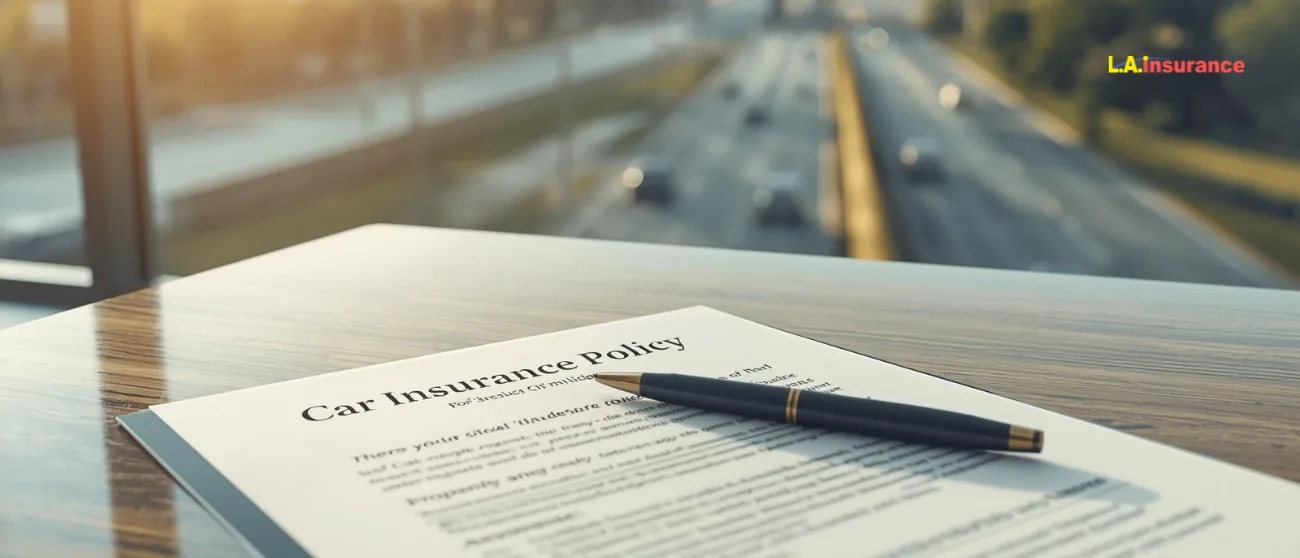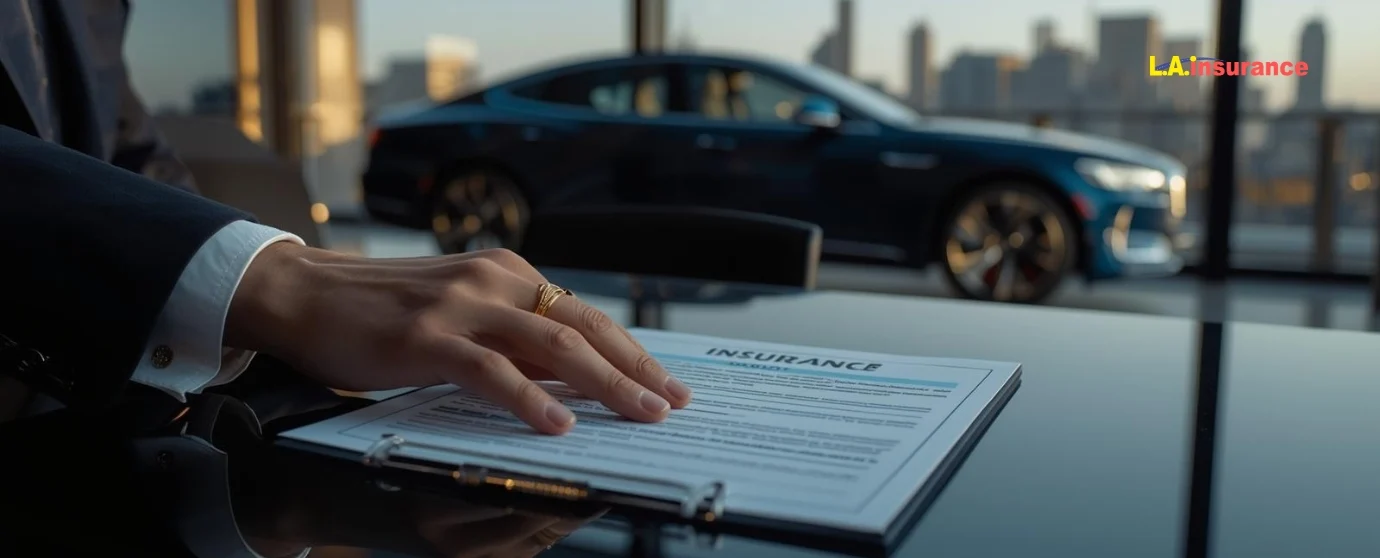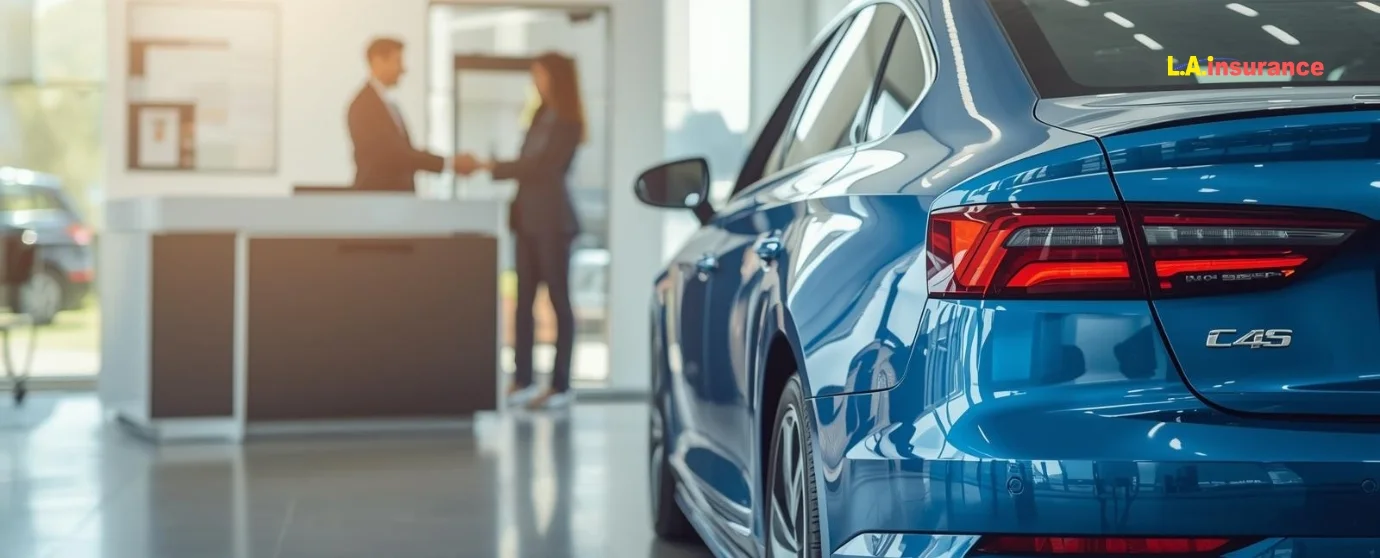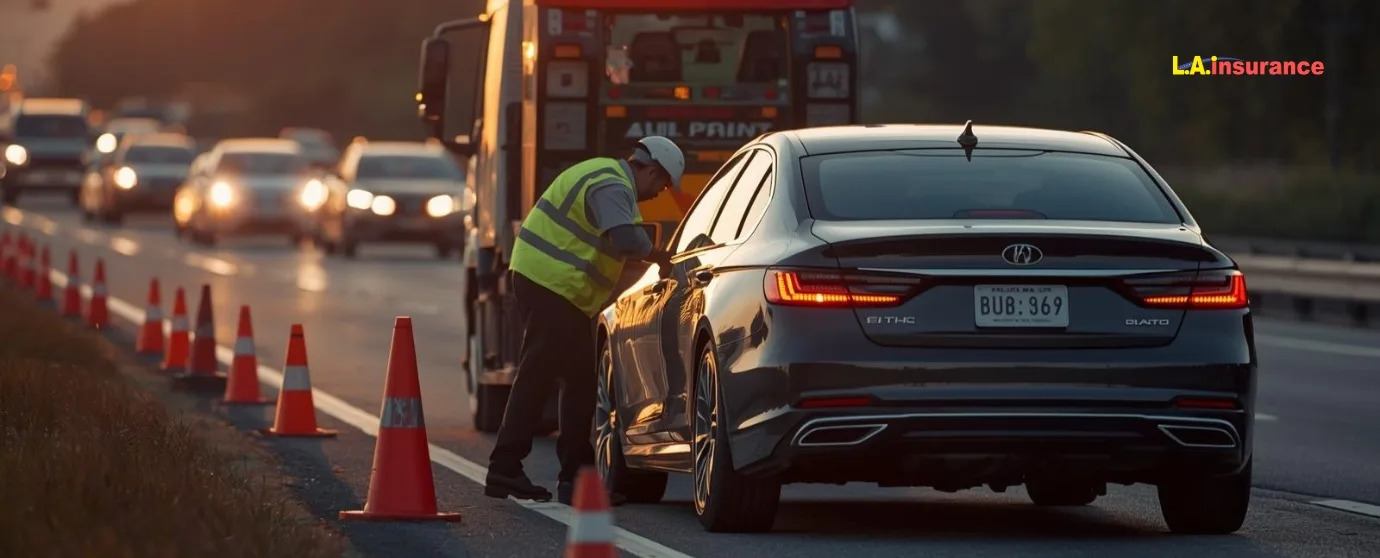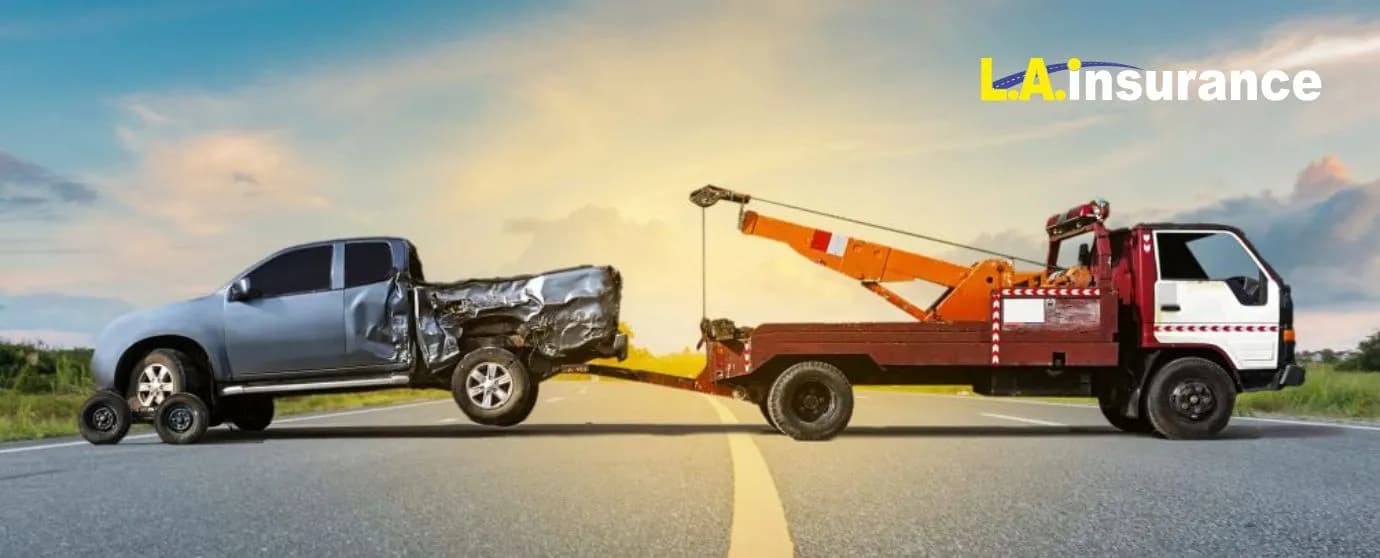
Publish Date: 21-01-2025
Auto Insurance
Last Updated: 18-12-2025
Does Full Coverage Car Insurance Cover Towing?
Just think of that helpless situation when your car breaks down in the middle of nowhere. You’re stranded, frustrated, and unsure who to call. Tow truck services can be costly, especially if you don’t have the right auto insurance coverage. Many drivers also assume that their full coverage insurance automatically includes towing services, but that’s not always true. Yet if your car breaks down you might wonder “Does full coverage car insurance cover towing?”.
In this article, we’ll discuss when your car insurance may cover towing and how to add roadside assistance coverage for peace of mind. You’ll learn how to avoid unexpected costs and ensure your policy covers the cost of towing when it matters the most.
Does Car Insurance Cover Towing?
If you have only liability coverage, which is mandatory to carry in most states, it won’t cover towing. Car insurance usually covers towing only if you have added roadside assistance coverage or specific towing coverage to your policy.
This is simply an add-on that you can include to the policy you’re already maintaining. Without it, you’ll likely need to pay for a tow truck out of pocket which can be quite expensive.
However, there’s only one way through which you might get towing service. If you’re involved in an accident and the other driver is at fault, their liability insurance may cover the cost of towing your vehicle.
So, check your insurance policy and talk to the expert insurance agent to find out whether you have been covered for towing. You can also call your insurance company directly. If you don’t have roadside assistance, adding it to your insurance policy would not only save you extra bucks but also prevent stress during breakdowns.
Does Full Coverage Car Insurance Cover Towing?
Undoubtedly, full-coverage car insurance policies protect against many risks, but they don’t always include towing. If your vehicle is undrivable after an accident, collision, or theft, your policy may cover the cost of towing.
But you won’t get towing services from full coverage insurance if your car suddenly stops due to mechanical breakdowns or flat tires. You’re going to need roadside assistance coverage for that. As we said earlier, without this add-on, you’ll likely pay for towing services by yourself.
What Exactly Does Full Coverage Insurance Cover?
Full coverage insurance commonly combines liability insurance, collision coverage, and comprehensive car insurance. Together they offer broad protection for your vehicle.
- Liability Insurance covers damages or injuries you cause to others.
- Collision coverage pays for repairs if your car is damaged in an accident.
- Comprehensive insurance handles non-collision events like theft, vandalism, natural disasters like hail damage, floods, and storms.
It’s true that affordable full-coverage car insurance is worth purchasing. Plus, it protects your car against many risks, but it doesn’t automatically cover situations including towing services.
Learn more about the various types of car insurance coverage to see what they cover and don't.
Is Towing Automatically Included in Full Coverage?
So, if you’re wondering here about whether towing services would be automatically included in full coverage auto insurance or not, the simple answer is no. It isn’t automatically part of full coverage insurance. Some insurance companies bundle roadside assistance coverage with full coverage, but it’s not standard. If your vehicle becomes undrivable after a covered event, like a crash, towing services may be included.
You’ll need a separate towing coverage add-on for flat tires or mechanical failures. Hope you’ll never get surprised anymore if you call your insurance companyto arrange a tow truck and they refuse!
When Does Full Coverage Car Insurance Cover Towing?
As we said previously, full coverage insurance may cover towing depending on the cause of your car’s breakdown. It’s not automatic for every situation. Usually, coverage applies after a collision, theft, or another covered event. If your car abruptly shuts down, you’ll require coverage for additional towing and labor costs or roadside assistance.
Your policy might cover the cost of towing in the following situations:
- After a covered collision where your car is too damaged to drive.
- If your car is stolen and recovered, requiring a tow.
- Damage from natural disasters, like flooding, making your vehicle inoperable.
Remember without roadside assistance, most other scenarios won’t qualify for towing under full coverage. However, if another driver causes an accident, their liability insurance usually pays for your towing. When you are at fault, collision coverage may cover towing services if your policy's terms and conditions allow it.
So, What Is Roadside Assistance, and How Does It Help?
Roadside assistance is an optional service that provides help when your car breaks down unexpectedly. It’s crafted to get you back on the road quickly or transport your vehicle to a repair shop if needed. Many insurance companies offer this coverage as an add-on to auto insurance policies.
Roadside assistance can cover:
- Towing your vehicle when it won’t start or is undrivable.
- Fuel delivery if you run out of gas.
- Flat tire services to change or repair a damaged tire.
- Jump-starts for a dead battery.
- Locksmith services if you’re locked out of your car.
- Using a winch to pull a stuck vehicle out.
Please note that since this is a special add-on service it isn’t inevitably included in your insurance policy. You can add roadside assistance to your policy for about $20 to $60 per year. The price usually depends on the insurance company you choose. It’s also important to keep in mind that roadside assistance usually doesn’t cover towing after an accident. If you’re the victim of the accident, the other driver’s liability insurance might pay for it but if you’re at fault no insurance will cover the towing services.
Standard Towing Services Costs Vs. Roadside Assistance Cost
So, if you’re confused about whether it’s worth adding roadside assistance to your full coverage policy or simply calling for a tow truck, we’re here to help! First of all, it all comes to the price if you want to compare regular towing service vs. roadside assistance coverage add-on.
According to J.D. Power, the national average cost for a tow is $109. However, this rate may vary by state, towing service companies, distance, vehicle weight, and hook-up fee. Usually, you can expect to pay around $2.50 to $7.50 per mile for a tow truck. Some companies simply charge $100 for towing up to 10 miles.
The average price for regular towing services is based on distance as stated by J.D. Power:
Distance | Costs of Towing |
5 Miles | $35 to $125 |
40 Miles | $125 to $275 |
100 Miles | Up to $600 |
On the other hand, simply adding roadside assistance to your full coverage auto policy would cost you roughly $5 to $15 per month. Some insurers even offer this policy for $20 to $25 a year. This is shockingly cheaper than hiring a tow truck. Plus, the convenience and benefits of it are worth the price. Whenever your car gets stuck or breaks down, you simply call your insurance company, and they help you with towing services. Or else, you can call the nearest tow truck service and send the bills to your insurer and get compensation. This is more easy, flexible, and you never have to worry about the costs of towing.
In brief, whether your car insurance covers towing or not, if you add roadside assistance to your existing insurance policy, it will benefit you by saving extra money, offering convenience, and helping you with all the stress you might face when your car breaks down off the beaten track.
Adding Roadside Assistance to Your Insurance Policy
Having roadside assistance coverage can save you from unexpected towing costs and stressful breakdowns. If your insurance policy doesn’t include it, adding this service is easy.
How to check If You Already Have Roadside Assistance?
You can simply begin by reviewing your car insurance policy documents. Look for terms like “towing services” or “roadside assistance coverage”. If the paperwork is unclear, contact your insurance company directly. Their customer service can confirm whether your plan includes these benefits.
However, fortunately, if you’re one of the valued policyholders of L.A. Insurance, you can call us at (800) 893-9393 to learn anything about your policy. You can also contact our insurance agent if you have trouble understanding any particular clause or terms.
Apart from insurance companies, you might also have coverage through other means, like a credit card or membership in a motor club. We would suggest checking these options as well so that you don’t have to end up paying for duplicate services.
Steps to Add Towing and Roadside Assistance Coverage to Your Insurance Policy
This is the simplest thing ever! You just have to tell your insurer what you want and they will do everything on behalf of you. Here’s what you can do to add this add-on to your full coverage or liability car insurance policy:
- Contact Your Insurer: Call your insurance company or insurance broker or visit their website to explore roadside assistance options.
- Review Available Plans: Compare features like towing distance limits, service call allowances, and extra benefits like trip interruption.
- Select the Right Plan: Choose coverage that fits your driving habits, vehicle condition, and travel frequency.
- Update Your Policy: Finalize the changes, and confirm the new coverage is active.
As we spoke earlier, adding roadside assistance usually costs a few dollars a month. However, the flexibility, convenience, and immediate help it offers, especially when you’re stuck on the road, is truly worth the price.
How Does Towing Coverage Work
Towing coverage which is an add-on to your auto insurance or part of a roadside assistance plan helps pay for towing services when your vehicle breaks down or becomes undrivable. Unlike standard coverage which may handle towing your vehicle after a covered accident, towing coverage can also assist during mechanical failures or flat tires. Including it in your full coverage policy saves you from hefty bills when hiring towing companies.
Reimbursement Process for Towing
Many insurance companies require you to pay for towing services upfront and then file for reimbursement. To get reimbursed:
- Request an itemized receipt from the tow truck operator.
- Submit a claim to your insurer, providing the receipt and details of the incident.
- Follow your insurance company’s instructions for faster processing.
Typical Distance Limit for Towing Services
Most plans have towing distance limits. Basic policies might cover up to 15 miles. However, getting premium options can offer up to 100 miles. If your tow exceeds the limit, you’ll pay the extra cost. When you purchase this add-on, talk to your insurance company or car insurance agent about the policy’s distance cap.
Does Car Insurance Cover Towing a Trailer?
For the most part, yes, car insurance may cover trailers. If you have the basic liability insurance which you must have, it can cover damage you do to other people's property or people who are riding with you on your trailer. But it doesn't usually keep your trailer safe or cover its contents.
Your insurance probably won't cover renting a trailer, like a U-Haul moving trailer. Many rental companies offer their own insurance options. To avoid having to pay for damage, it's important to get short-term coverage.
State and insurance company rules vary on how much a trailer is covered. If you already have auto insurance, some companies will let you add a trailer to it. Specifics of coverage vary on the type of trailer, its use, and location.
Will Towing Affect Your Car Insurance Rates?
In most cases, getting your car towed won’t raise your auto insurance rates. If you use roadside assistance coverage for minor issues like a flat tire or mechanical breakdown, insurers have no reason to treat it as a risk factor. However, excessive use of this service might raise concerns with your insurance company which might potentially impact future premiums or policy renewal.
Besides, towing related to accidents may affect your rates if a claim is filed, especially when you’re at fault. Events like impoundments for illegal parking or violations can also lead to rate increases if they show up on the driving record.
Alternative to Roadside Assistance for Towing
If you don’t want to add roadside assistance coverage to your auto insurance policy, there are other options for towing services.
- Motor Club: Organizations like AAA offer membership plans that include towing your vehicle and other perks. They alone have more than 65 million members.
- Credit Cards: Some credit cards provide towing benefits as part of their travel or emergency services.
- Car Manufacturers: Many new cars come with complimentary roadside assistance for a limited time.
- Standalone Providers: Companies like Better World Club offer towing coverage separately from insurance policies.
Best Tips for Getting Covered for Towing Through Full Coverage Auto Insurance
- Add roadside assistance to your policy for broad towing coverage.
- Check your policy details to learn about towing limits and conditions.
- Confirm collision and comprehensive coverage include towing after accidents or covered events.
- Ask your insurance company about distance restrictions for towing services.
- Keep towing receipts if your policy requires reimbursement instead of direct coverage.
- Avoid overusing roadside assistance to prevent potential rate increases.
- Look for standalone towing services if your insurer’s coverage doesn’t meet your needs.
Will Full Coverage Auto Insurance Cover Towing: The Bottom Line
Many risks are covered by full coverage insurance, but towing isn't always covered. Adding roadside assistance coverage, sometimes called “emergency road service coverage" or "towing and labor coverage”, makes sure that you will get help if your car breaks down. Knowing the limits of your insurance, keeping your towing receipts, and choosing the right coverage can help you avoid costs you didn't expect. Review your insurance policy and think about other options in case your current plan doesn't cover what you need. If you don’t have any insurance coverage for towing, you call 911 for help. In California, there are boxes on the side of the road where you can call 511 and say "Roadside Assistance" to get help.
Have more questions in mind? Read more articles about car insurance coverage:
- Will My Insurance Cover Car Wash Damage?
- Does Insurance Cover Auto Repairs?
- Does Car Insurance Cover Car Battery?
- Does Car Insurance Cover Hail Damage?
- Does Car Insurance Cover Car Seats?
- How to Insure a Car for Your Elderly Parent?
Frequently Asked Questions (FAQs)
1. What’s the Difference Between Towing and Labor Coverage Vs. Roadside Assistance?
Towing and labor coverage typically includes towing services and basic roadside help, like changing a flat tire. Roadside assistance offers broader protection, including fuel delivery, lockout services, and jump-starts, along with towing. It often has more comprehensive benefits than standard towing and labor coverage.
2. Does Insurance Cover Impound Fees?
No, most insurance companies do not cover impound fees. You’ll need to pay these costs out of pocket, even if your policy covers the towing itself. Retrieve your car promptly to avoid additional fees.
3. How Much Do I Have to Pay for Roadside Assistance Add-On?
The cost of adding roadside assistance coverage typically ranges from $5 to $15 per month, depending on your insurer and policy.
4. Will My Insurance Go Up If I Get a Tow?
Not usually. Occasional use of towing services through roadside assistance won’t impact your rates. However, frequent claims or tows linked to accidents can raise premiums.
Editorial Disclaimer
The information provided on this blog is for general informational purposes only and does not constitute professional insurance, legal, or financial advice. Coverage and rates are subject to individual eligibility, underwriting guidelines, and state availability. For specific questions regarding your policy or to get an accurate quote, please contact a licensed L.A. Insurance agent directly. We're an independent agency and not a direct insurance carrier. For more information on how we operate and handle your data, please see our Terms and Conditions and Privacy Policy.
Tag :
Auto insurance
